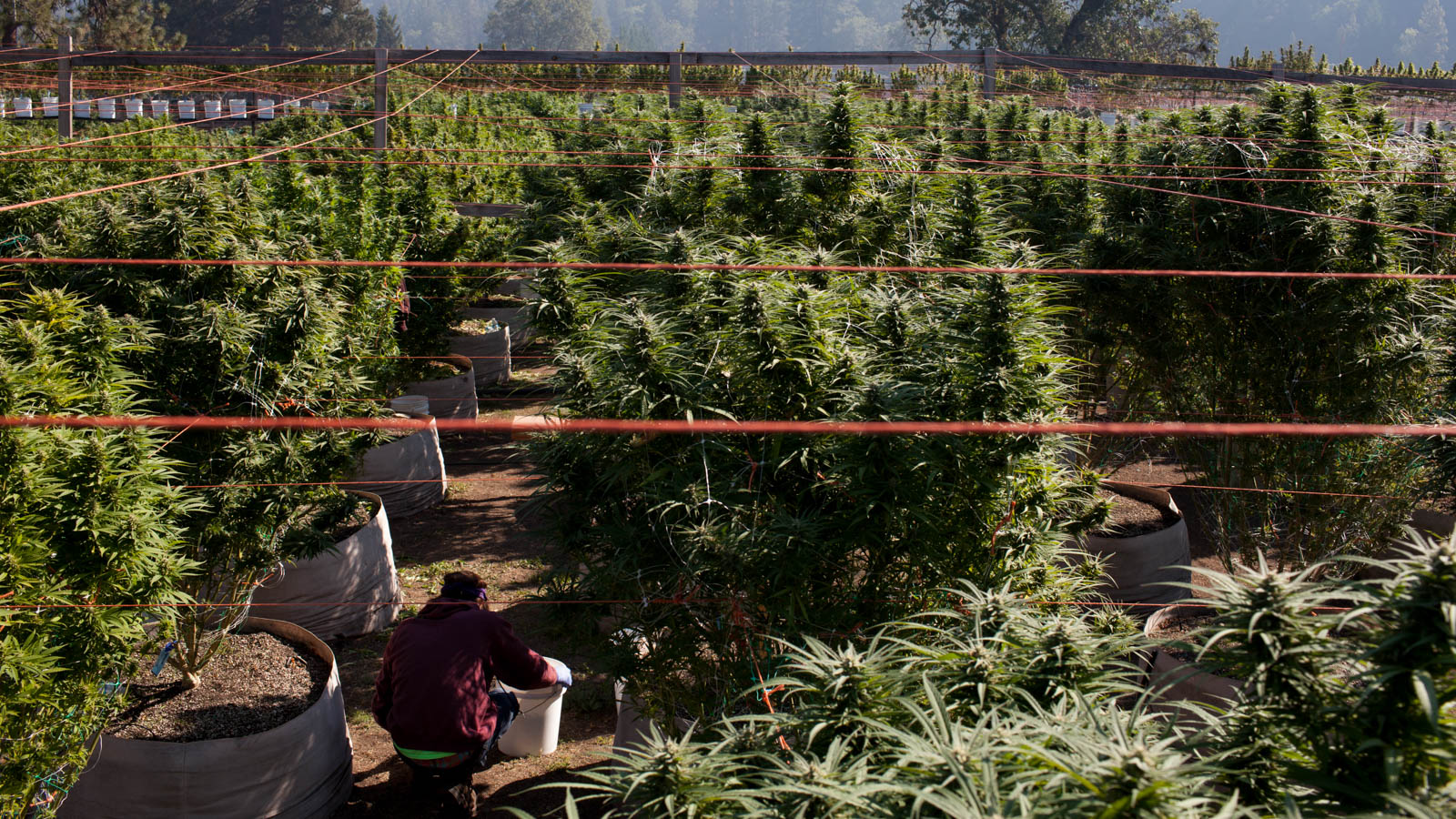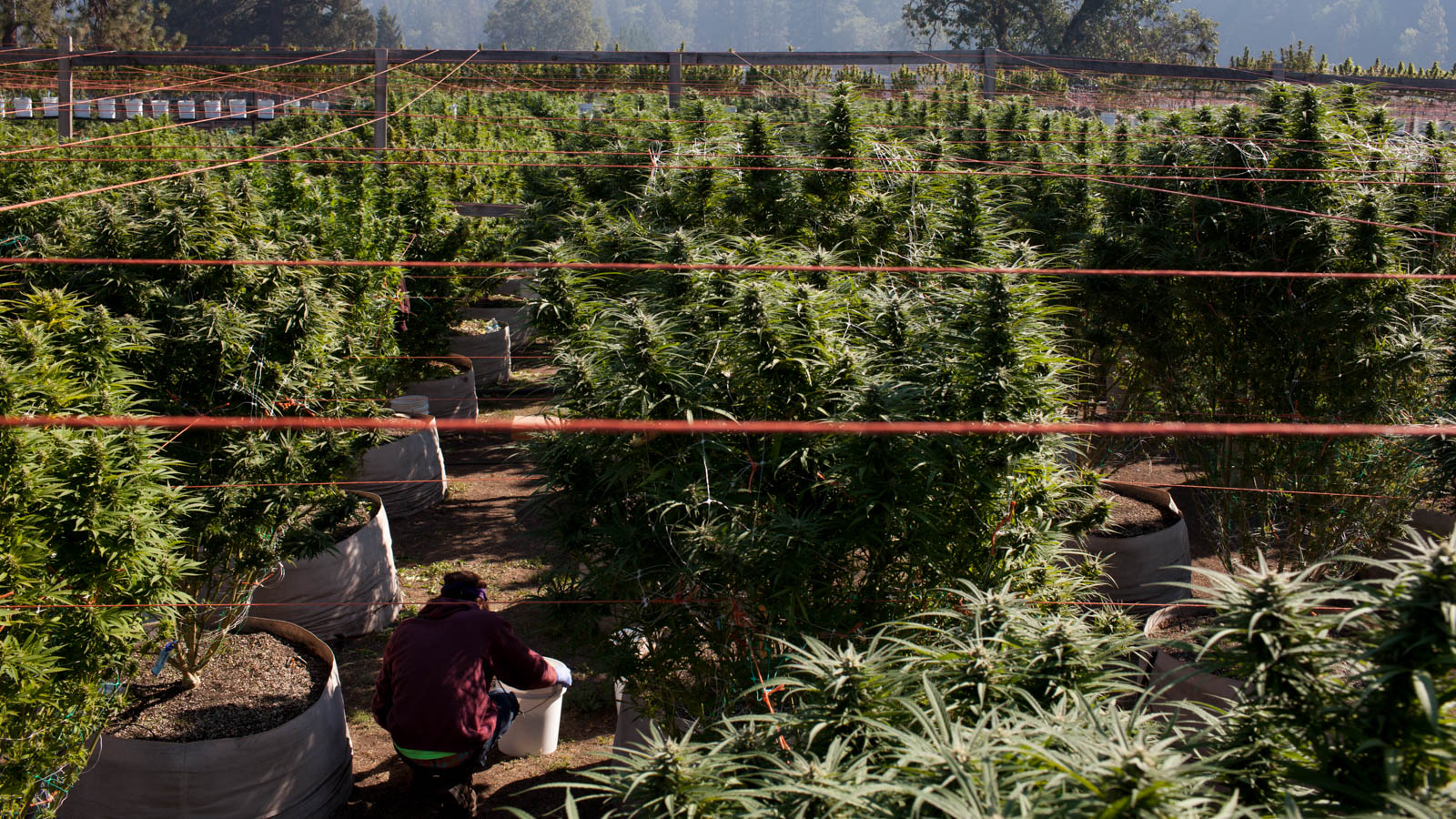
There is a long history of reports regarding the dangerous and exploitative conditions of women working as seasonal weed trimmers — and a trimmer born and raised in Humboldt County is calling for the industry to improve its pay and workplaces so that women know they can safely purse cannabis work.
In a May 28, 2019, Now This video, Humboldt County native, artist, and writer Kelly Schirmann speaks about some of the issues weighing on the predominantly female trimming workforce in the Emerald Triangle, a famed marijuana growing region in Northern California. In the wake of marijuana legalization in California, the Emerald Triangle has garnered increasing attention, from its movement towards a flourising tourism market to Netflix’s controversial “Murder Mountain” documentary.
“For female workers, this job can be dangerous, exploitative, and degrading,” Schirmann said in the video. “The cannabis trimming industry is a case study on how the history of cannabis labor has been both gendered and discriminatory.”
This writer and former laborer is exposing sexism and discrimination against women in the cannabis industry (In partnership with @TIMESUPNOW #TIMESUP) pic.twitter.com/HHmiaqHqtl
— NowThis (@nowthisnews) May 29, 2019
In the exposé, she retells her experience working weeks without pay and being shortchanged without being able to hold the cultivator accountable, and those of other women she has worked with (among unfortunately many more), calling the experiences “horror stories of toxic environments … everything from sexual harassment and disparaging comments to sexual abuse, abduction, or worse.”
According to Schirmann, women in these roles feel as though they have no agency to report incidents. Since every job within unlicensed grows are accustomed to operating in the shadows, “the majority of abuse usually goes unreported and unchecked.”
“The gender divide in cannabis work is stark: The majority of trimmers I’ve met and worked with are women, and the majority of growers are men. Because of this divide, cannabis work can create dangerous spaces for female workers,” Schirmann explained.
This isn’t the first time Schirmann has chronicled her experience as a weed trimmer. In 2016, she wrote of her experience as a “Trim Bitch” for Vice. In it, she painted a picture of the overarching sexist ideology operating within the grows: “While the men are fixtures — usually property owners — the women are interchangeable, expendable labor. Locals will regularly refer to the girlfriends of weed farmers as ‘grow hoes’ or ‘potstitutes,’ two widely-acknowledged rural archetypes suggesting that women in the weed industry do nothing but receive unearned benefits from their male partners.”
“Cannabis is a billion-dollar industry and yet the majority of those profits are now trending upward to mostly male business owners and investors,” Schirmann said in the Twitter video.
Schirmann hopes marijuana legalization leads to the progression for more rights for workers, including increasing the pay for trimmers. “The majority of labor jobs, even in the legal industry, tend toward a minimum wage model. This exacerbates the gender pay gap, even in a so-called progressive industry,” Schirmann said. “As more states legalize weed, my hope is that all cannabis workers are paid a living wage … and that people, particularly women and girls, know that there are safe options for them to pursue this kind of work.”
Feature image by Kristen Angelo











